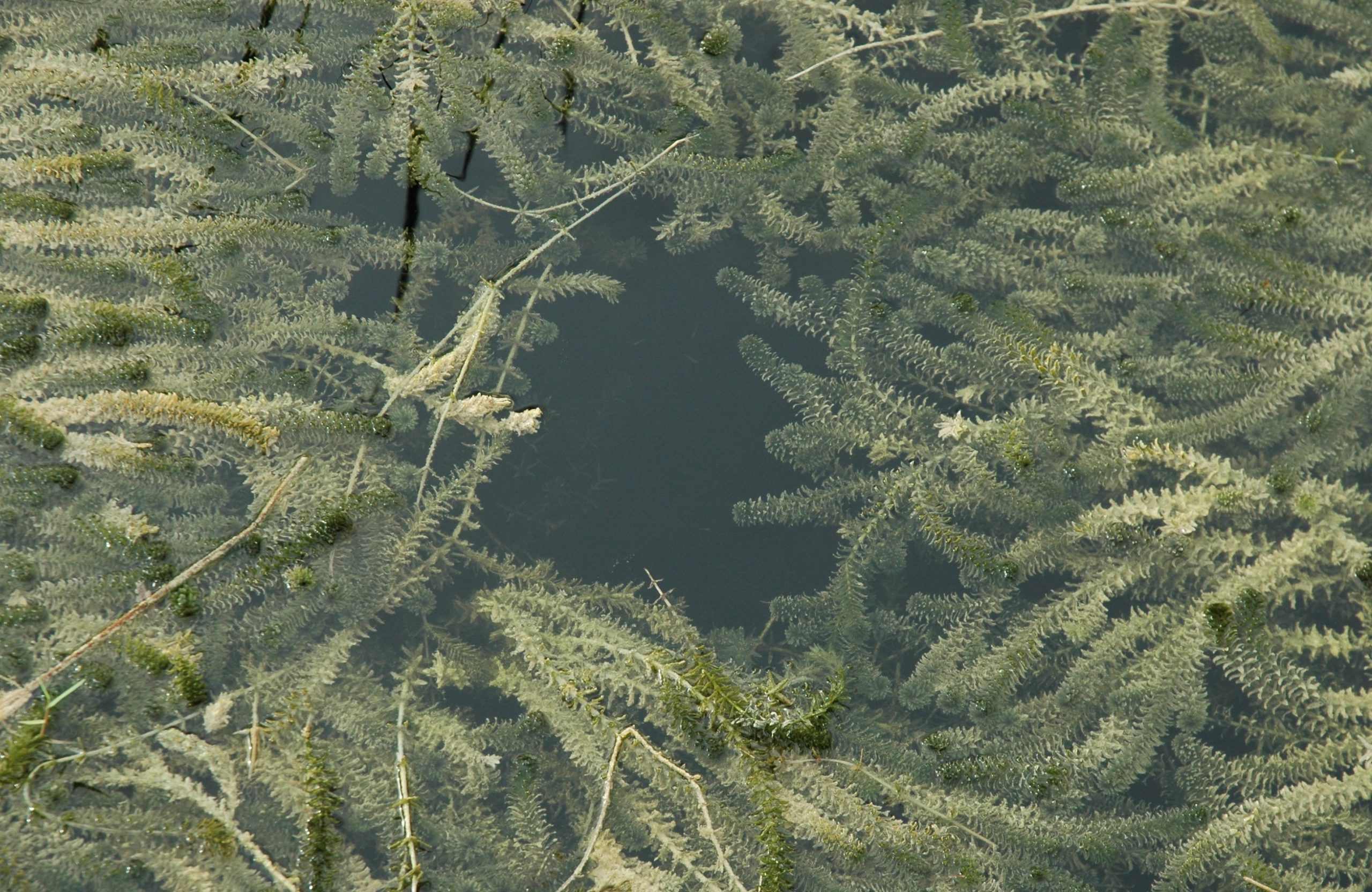Concord Pond to Be Treated for Invasive Aquatic Weed Hydrilla

The invasive aquatic weed hydrilla. Photo by David J. Moorhead-University of Georgia
With inland water temperatures rising and aquatic plants emerging, the Delaware Department of Natural Resources and Environmental Control will treat Concord Pond near Seaford beginning May 16 for the nuisance aquatic weed hydrilla. Signs will be posted at the Concord Pond boat ramp the day of treatment, and will remain in place for a month to advise the public and anglers of the treatment.
Hydrilla is a non-native, invasive plant that likely entered the state through the aquarium trade. Uncontrolled hydrilla can choke ponds and other waterways, crowding out beneficial plant species and preventing fishing and boating access.
Sonar, an aquatic herbicide containing fluridone, will be used to treat the pond for hydrilla. Sonar, registered with and approved by the U.S. Environmental Protection Agency, has been used in Delaware since the 1980s and proven to be environmentally-compatible and effective for controlling hydrilla. Sonar does not pose a threat to wildlife, including fish, and there are no restrictions on fishing or consumption of fish after treatment.
The only restriction related to Sonar is that water from the treated pond should not be used for irrigation for 30 days after the date of treatment. Residents and farmers along the treated pond and directly downstream of it should not use the water to irrigate their gardens, yards or agricultural lands to avoid possible damage to their plantings. Landowners with permits to use water from the pond will be directly notified before treatment.
To prevent the spread of hydrilla and other invasive aquatic vegetation, anglers and boaters are encouraged to remove all hydrilla and other aquatic plants from their boats, trailers and gear before leaving the Concord Pond boat ramp.
For more information, contact the DNREC Fisheries Section at 302-739-9914.
About DNREC The Delaware Department of Natural Resources and Environmental Control protects and manages the state’s natural resources, protects public health, provides outdoor recreational opportunities, and educates Delawareans about the environment. The DNREC Division of Fish and Wildlife conserves and manages Delaware’s fish and wildlife and their habitats, and provides fishing, hunting, wildlife viewing and boating access on nearly 68,000 acres of public land. For more information, visit the website and connect with @DelawareDNREC on Facebook, Twitter or LinkedIn.
Media Contacts: Michael Globetti, michael.globetti@delaware.gov; Nikki Lavoie, nikki.lavoie@delaware.gov
###
Legal Disclaimer:
EIN Presswire provides this news content "as is" without warranty of any kind. We do not accept any responsibility or liability for the accuracy, content, images, videos, licenses, completeness, legality, or reliability of the information contained in this article. If you have any complaints or copyright issues related to this article, kindly contact the author above.
